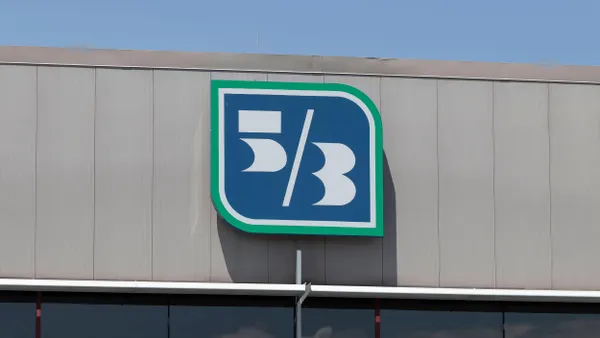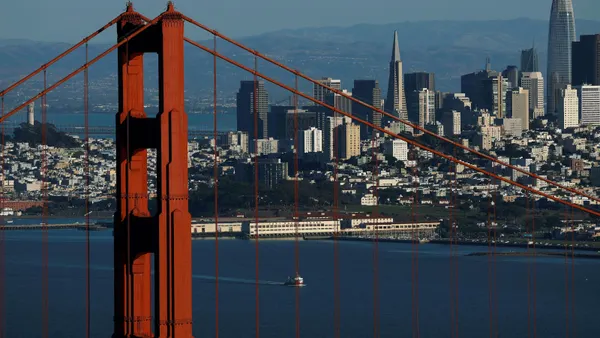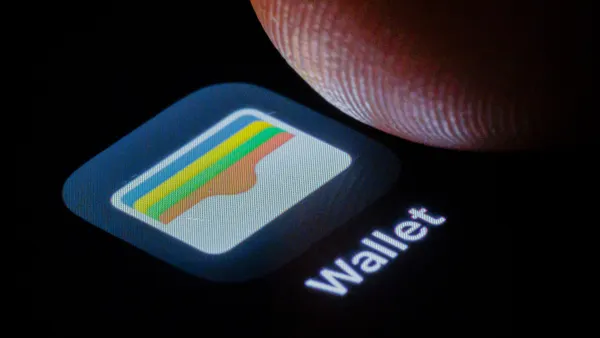Update: Aug. 22, 2019: Apple raised eyebrows Tuesday when it warned users of the titanium version of the card to keep it away from denim and leather. Such fabrics could permanently discolor the card, a support pages document said.
Dive Brief:
- Tuesday's U.S. rollout of the Apple Card could be a huge boost for Goldman Sachs' consumer banking division. "With no real legacy technology or a longstanding consumer business to defend, we are positioned to innovate unlike many others in the industry," Goldman Sachs CEO David Solomon said Tuesday in a memo to employees obtained by CNBC. The bank co-branded the card.
- Customers can boost their security by choosing a card that lacks a 16-digit number on the front, said Craig Vosburg, president of North American operations for Mastercard, another of Apple's partners in the launch. "Not having a card number on the physical card, if the consumer chooses to get that, helps [with security] certainly because somebody can't just write that down and take it," he said on CNBC's "Squawk Alley."
- To coincide with the launch, Apple extended its 3% cash-back rewards Tuesday to Uber and Uber Eats customers who make purchases with their Apple Card with Apple Pay.
Dive Insight:
Despite its 150-year history, Goldman Sachs only launched its consumer banking division under the Marcus brand in 2016. Goldman ranks as the fifth-largest U.S. bank by assets, with $925.4 billion, according to Bankrate.com. In his memo, Solomon called Goldman's Marcus division "a growing disruptor in consumer financial services." Marcus has 4 million customers, $5 billion in loan balances and has seen more than $50 billion in deposits, according to the memo.
"Apple Card is big, but it’s also a beginning," Solomon wrote. "In the decades to come, I expect us to be a leader in our consumer business, just like we are in our institutional and corporate businesses, with customer-centricity at the core of everything we do."
Meanwhile, Mastercard's Vosburg said the Apple Card's tokenized credentials make for a safer experience. Users get a one-time use number in the Wallet app rather than a 16-digit number etched on the card’s surface.
"We're taking the digital representation of that 16-digit number and scrambling [it] into a code that only we and Goldman Sachs can recognize," Vosburg told CNBC. "We know it's meant to be used with that Apple device and if it shows up somewhere else, we know it's been compromised and we can kill it."
The card's rollout Tuesday follows an earlier soft launch.
In extending its 3% cash-back deal to Uber users, Apple looks to push its Apple Pay sales volume. Apple said it plans to offer cash-back partnerships with more merchants in the future. The 3% figure matches what users get from Apple purchases. Apple Card users get 2% cash back on other Apple Pay purchases. Customers who make purchases on the titanium version of the Apple Card will receive 1% cash back.














